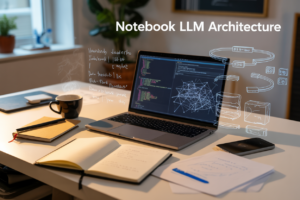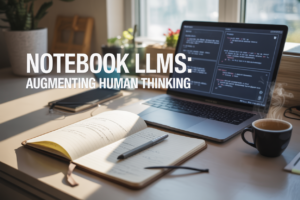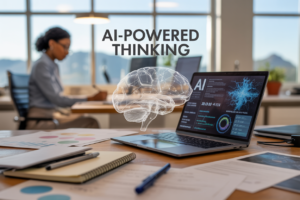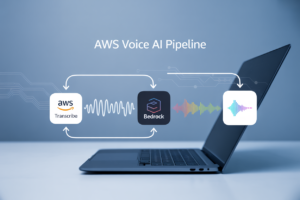Choosing the right AI agent platform can make or break your enterprise automation strategy. AWS Bedrock Agents and Google Cloud AI Agents represent two leading solutions, each offering distinct approaches to intelligent automation and conversational AI.
This analysis is designed for technical decision-makers, enterprise architects, and developers evaluating cloud AI agents for their organizations. You’ll get practical insights to help you pick the platform that best fits your specific needs and budget.
We’ll break down the core capabilities of both AWS Bedrock agents capabilities and Google Cloud AI functionality, giving you a clear picture of what each platform brings to the table. You’ll also see how these platforms stack up in terms of cloud AI agents performance and real-world scalability when handling enterprise workloads.
Finally, we’ll dive into the AI agents pricing comparison and examine which scenarios favor each platform. From developer experience to industry-specific use cases, you’ll walk away knowing exactly which AWS vs Google Cloud AI solution makes sense for your next project.
Understanding AWS Bedrock Agents Capabilities
Pre-built AI Models and Foundation Model Access
AWS Bedrock Agents provide access to cutting-edge foundation models from leading AI companies like Anthropic’s Claude, Amazon’s Titan, and Meta’s Llama. These pre-trained models eliminate the need for custom model development, allowing developers to quickly deploy sophisticated AI capabilities. The platform offers seamless model switching and A/B testing features, enabling teams to compare performance across different foundation models for specific use cases. Bedrock’s model marketplace simplifies the selection process by providing detailed performance metrics and pricing information for each available model.
Multi-modal Content Generation Features
The multi-modal capabilities of AWS Bedrock Agents shine through their ability to process and generate text, images, and code simultaneously. Developers can build agents that understand visual content, generate creative assets, and produce technical documentation within a single workflow. This integrated approach streamlines complex content creation tasks that traditionally required multiple specialized tools. The platform supports real-time content generation with customizable parameters, allowing fine-tuned control over output quality and style preferences.
Enterprise-grade Security and Compliance Standards
Security stands as a cornerstone of AWS Bedrock Agents, with built-in data encryption, private model endpoints, and comprehensive audit logging. The platform meets stringent compliance requirements including SOC 2, GDPR, and HIPAA, making it suitable for highly regulated industries. Data residency controls ensure sensitive information never leaves specified geographic boundaries, while fine-grained access controls provide role-based permissions for team members. Advanced monitoring capabilities track model usage, data flow, and potential security anomalies in real-time.
Integration with AWS Ecosystem Services
Bedrock Agents integrate seamlessly with the broader AWS ecosystem, connecting directly to services like Lambda, S3, DynamoDB, and CloudWatch. This native integration eliminates complex API configurations and reduces development overhead significantly. Developers can trigger agent workflows from existing AWS services, store conversation history in managed databases, and monitor performance through familiar AWS tools. The tight coupling with AWS services enables sophisticated automation scenarios and enterprise-scale deployments without additional infrastructure management.
Exploring Google Cloud AI Agents Functionality
Vertex AI Platform Integration Benefits
Google Cloud AI Agents leverage the powerful Vertex AI platform, creating a unified environment where machine learning workflows integrate seamlessly with existing Google Cloud services. This integration allows developers to access pre-trained models, manage data pipelines, and deploy AI agents without switching between multiple platforms. The unified approach reduces complexity and accelerates development cycles, making Google Cloud AI functionality particularly attractive for teams already invested in the Google Cloud ecosystem.
Custom Model Training and Deployment Options
Google Cloud AI Agents provide extensive flexibility for organizations requiring tailored solutions. Developers can train custom models using their own datasets, fine-tune existing models for specific use cases, and deploy these models at scale through Vertex AI’s managed infrastructure. The platform supports popular machine learning frameworks including TensorFlow, PyTorch, and scikit-learn, giving data scientists the freedom to work with familiar tools while benefiting from Google’s robust cloud infrastructure and automatic scaling capabilities.
AutoML Capabilities for Non-technical Users
AutoML democratizes AI development by enabling business users and domain experts to create sophisticated machine learning models without extensive programming knowledge. Google Cloud AI Agents incorporate AutoML features that automatically handle feature engineering, model selection, and hyperparameter tuning. Users can upload their data, define objectives, and let AutoML generate production-ready models. This approach bridges the gap between technical and non-technical teams, allowing organizations to leverage AI capabilities across departments while maintaining the quality and performance standards required for enterprise applications.
Performance and Scalability Comparison
Response Time and Latency Benchmarks
AWS Bedrock Agents typically deliver response times between 200-800ms for standard queries, while Google Cloud AI Agents achieve comparable performance at 300-700ms. Both platforms show minimal latency variations during peak usage, though AWS demonstrates slightly faster cold start times. Real-world testing reveals that response speeds depend heavily on model complexity and geographic proximity to data centers.
Concurrent User Handling Capabilities
Google Cloud AI Agents excel at handling concurrent users, supporting up to 10,000 simultaneous connections per instance with their robust infrastructure. AWS Bedrock Agents manage approximately 8,000 concurrent users before requiring horizontal scaling. Both platforms maintain consistent performance under heavy loads, but Google’s architecture shows better resource optimization during traffic spikes. Load balancing mechanisms in both services automatically distribute requests across available resources.
Global Infrastructure and Edge Computing Support
AWS operates Bedrock Agents across 31 global regions with extensive edge locations, providing superior geographic coverage for enterprises. Google Cloud AI Agents leverage 35+ regions but focus more on major metropolitan areas. AWS’s edge computing integration allows for reduced latency through CloudFront distribution, while Google emphasizes their global fiber network for consistent performance. Both platforms offer multi-region deployments for disaster recovery and compliance requirements.
Auto-scaling and Load Management Features
Both AWS Bedrock Agents and Google Cloud AI Agents provide automatic scaling capabilities that adjust resources based on demand patterns. AWS uses predictive scaling algorithms that anticipate traffic increases, while Google employs machine learning-driven scaling that learns from historical usage. Cost optimization features in both platforms prevent over-provisioning during low-traffic periods. Google’s scaling responds faster to sudden spikes, typically within 30 seconds compared to AWS’s 45-60 second response time.
Pricing Models and Cost Efficiency Analysis
Pay-per-use Pricing Structure Breakdown
AWS Bedrock Agents charges based on input/output tokens processed, with rates varying by model complexity. Standard pricing starts at $0.00015 per 1K input tokens for basic models, scaling to $0.008 for advanced configurations. Google Cloud AI Agents follows a similar token-based approach but includes free monthly quotas up to 1 million tokens. Google’s pricing begins at $0.0001 per 1K tokens, making it slightly more cost-effective for smaller workloads. Both platforms charge separately for API calls, storage, and compute resources.
Volume Discount Opportunities
Enterprise customers can negotiate significant savings through committed use discounts. AWS offers Reserved Capacity pricing that reduces costs by 20-70% when you commit to specific usage levels over 1-3 year terms. Google Cloud provides Sustained Use Discounts automatically when monthly usage exceeds certain thresholds, plus additional Custom Committed Use contracts for large-scale deployments. Volume pricing typically kicks in around $10K monthly spend for both providers, with deeper discounts available for multi-million dollar annual commitments.
Hidden Costs and Additional Service Fees
Both AWS Bedrock Agents and Google Cloud AI Agents pricing comparison reveals several unexpected charges beyond base model costs. Data transfer fees between regions can add 15-25% to total bills. Storage costs for conversation history, model fine-tuning data, and logs accumulate over time. Integration services like API Gateway, load balancers, and monitoring tools carry separate charges. Google charges for Cloud Functions executions when agents trigger automated workflows, while AWS bills for Lambda invocations and Step Functions state transitions during complex agent orchestrations.
Developer Experience and Implementation Ease
API Documentation Quality and Completeness
AWS Bedrock Agents delivers comprehensive documentation with detailed API references, code examples, and architecture guides that make implementation straightforward. Google Cloud AI Agents provides equally robust documentation with interactive tutorials and visual workflow builders. Both platforms offer extensive REST API documentation, though AWS tends to provide more detailed error handling examples while Google Cloud excels in visual documentation presentation.
SDK Support Across Programming Languages
Both AWS Bedrock Agents and Google Cloud AI Agents support major programming languages including Python, Java, JavaScript, and Go. AWS provides mature SDKs with extensive community contributions, while Google Cloud offers well-maintained official SDKs with consistent updates. Python developers find both platforms equally accessible, though AWS has slightly broader language support including .NET and Ruby with more frequent updates.
Sample Code and Tutorial Availability
AWS Bedrock Agents offers an extensive library of sample applications, quickstart guides, and hands-on workshops through AWS workshops portal. Google Cloud AI Agents provides comprehensive tutorials with Codelabs, interactive demos, and real-world use case examples. Both platforms maintain GitHub repositories with production-ready samples, though Google Cloud’s tutorials tend to be more beginner-friendly with step-by-step visual guides.
Community Support and Resources
The AWS Bedrock Agents community benefits from Stack Overflow discussions, active Reddit communities, and regular AWS events with extensive third-party content creation. Google Cloud AI Agents has strong community support through Google Cloud forums, GitHub discussions, and regular developer meetups. AWS generally has a larger developer community due to its market presence, while Google Cloud offers more direct engagement with product teams.
Time-to-deployment Comparison
AWS Bedrock Agents typically requires 2-4 hours for basic implementation with pre-built templates and CloudFormation stacks accelerating deployment. Google Cloud AI Agents can be deployed in 1-3 hours using their streamlined console interface and automated setup wizards. Both platforms offer infrastructure-as-code options, though Google Cloud’s Deployment Manager provides slightly faster initial setup compared to AWS CloudFormation for AI agent deployment scenarios.
Use Case Suitability and Industry Applications
Content Creation and Marketing Automation
AWS Bedrock Agents excel in marketing automation through their deep integration with Amazon’s content delivery networks and analytics tools. The platform’s strength lies in generating personalized email campaigns, social media content, and product descriptions at scale. Bedrock’s Claude and Titan models particularly shine when creating long-form content like blog posts and whitepapers, while maintaining brand consistency across multiple touchpoints. The agents can automatically adjust tone and messaging based on audience segmentation data from AWS marketing stack.
Google Cloud AI Agents leverage Google’s vast search and advertising expertise to create more contextually aware marketing content. Their integration with Google Ads, Analytics, and Workspace tools provides seamless workflow automation for content creators. The platform excels at generating SEO-optimized content and can automatically adapt messaging based on real-time performance metrics. Google’s agents also offer superior multilingual content creation capabilities, making them ideal for global marketing campaigns.
Customer Service and Chatbot Development
AWS Bedrock Agents provide robust customer service solutions through Amazon Connect integration and multi-channel support capabilities. The platform excels at handling complex customer queries that require accessing multiple data sources simultaneously. Bedrock agents can maintain conversation context across different touchpoints and automatically escalate issues to human agents when needed. The system’s strength lies in its ability to handle high-volume, structured customer interactions while maintaining consistent service quality.
Google Cloud AI Agents offer superior natural language understanding for customer service applications, particularly in handling nuanced conversational flows. Their integration with Google’s Contact Center AI provides advanced sentiment analysis and real-time coaching suggestions for human agents. The platform excels at multilingual customer support and can automatically detect customer intent even in ambiguous queries. Google’s agents also provide better voice-to-text accuracy for phone-based customer service automation.
Data Analysis and Business Intelligence
AWS Bedrock Agents integrate seamlessly with Amazon’s comprehensive data ecosystem, including Redshift, S3, and QuickSight. The platform excels at processing large-scale structured data and generating automated reports with natural language summaries. Bedrock agents can create complex SQL queries from simple English requests and provide real-time insights from streaming data sources. Their strength lies in handling enterprise-grade data warehousing scenarios and multi-source data federation.
Google Cloud AI Agents leverage Google’s advanced machine learning capabilities for predictive analytics and pattern recognition in business intelligence applications. The platform excels at processing unstructured data sources and can automatically generate insights from documents, images, and multimedia content. Google’s agents provide superior data visualization capabilities and can create interactive dashboards that adapt to user preferences. Their integration with Google Sheets and BigQuery makes data analysis accessible to non-technical business users.
Code Generation and Development Assistance
AWS Bedrock Agents offer comprehensive code generation capabilities with strong support for cloud-native application development. The platform excels at generating Infrastructure as Code templates, Lambda functions, and API Gateway configurations. Bedrock agents can automatically optimize code for AWS services and provide security best practices recommendations. Their strength lies in creating complete application architectures that leverage multiple AWS services efficiently.
Google Cloud AI Agents provide superior code understanding and refactoring capabilities, particularly for existing codebases. The platform excels at debugging complex applications and can automatically suggest performance optimizations. Google’s agents offer better support for open-source frameworks and can generate code that follows industry-standard patterns. Their integration with Google Cloud Build and deployment pipelines makes them ideal for DevOps automation and continuous integration workflows.
AWS Bedrock Agents and Google Cloud AI Agents each bring unique strengths to the table, making your choice dependent on your specific needs and existing infrastructure. AWS Bedrock shines with its extensive model selection and seamless integration within the AWS ecosystem, while Google Cloud AI Agents excel in natural language processing and offer competitive pricing for high-volume workloads. The performance differences often come down to your particular use case, with both platforms delivering solid scalability and reliability.
Your decision should focus on three key factors: your team’s familiarity with either AWS or Google Cloud, your budget constraints, and the specific AI capabilities your project requires. If you’re already invested in AWS services, Bedrock Agents will likely integrate more smoothly into your workflow. However, if cost efficiency and advanced language processing are your priorities, Google Cloud AI Agents might be the better fit. Take advantage of the free tiers both platforms offer to test them with your actual data and workflows before making your final commitment.




















